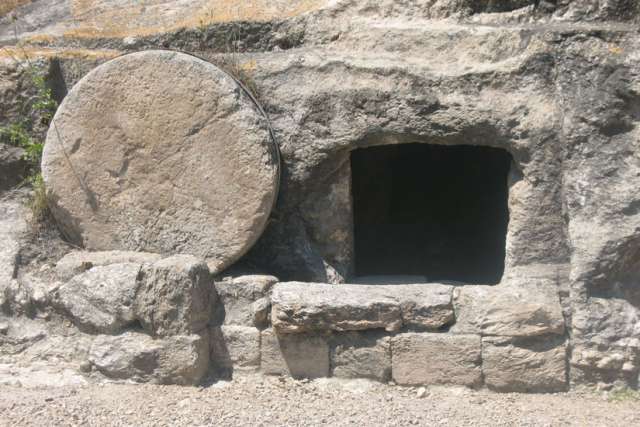Peter and the others were busy proclaiming the story: Jesus was anointed with the power of the Spirit; He went about doing good and healing people; He was great in every respect. But there was more to the story that separated Jesus from all other prophetic figures. He was arrested and put to death, and in the normal order of things, that should have been the end of Him and His movement. It was not to be! God raised Him from the dead, thereby vindicating Him in the eyes of the people and affirming everything that Jesus had taught and done. He even talked with His followers and ate with them — His resurrection was not an illusion, hysteria or wishful thinking, as some continue to intimate.
All of this was for a purpose, for Jesus had been appointed the one who will judge the world and all of humankind, both the living and the dead. The best part of the proclamation was that a clean start was being offered to any who believed in His name (and of course, lived by His teachings). This signalled a new day for individuals and for humanity as a whole.
As even the most cursory glance of the world reveals, this is far from complete. The work of proclaiming the message continues, but this is more than filling churches or church coffers, and it is not intended to be a free pass to “get saved.” The proclamation needs to be received into the collective heart of humanity and manifested in every aspect of human activity for it to achieve its full purpose.
This requires “seeking the things that are above,” which means aligning our thoughts and actions with divine principles. It is more difficult than we think, for it means relearning what it means to be human.
Most human behaviour is governed by fear and an obsession with the self. People, creation and God are viewed as independent and unconnected with one another. Ridding ourselves of the sense of separation and self-sufficiency is an important first step in our journey. The gulf between ourselves, others and God is illusory and of our own making.
The best part of the great story almost failed to get off the ground. When Mary Magdalene found the empty tomb, she reported this to Peter and the Beloved Disciple. They ran and checked it out, and sure enough, the tomb was empty. But they really didn’t understand its implications, and they returned home apparently unmoved and untouched by what they had seen.
It was the same in the other Gospels — the empty tomb alone means nothing. It must be joined with understanding and a willingness to be transformed. It was only after meeting the risen Jesus in the garden after the others had departed that she had a life-transforming experience. She failed twice to recognize Jesus and persisted in her weeping. Jesus challenged her, asking why she was weeping. Didn’t she understand? Could she not see? She had to leave behind all of her presuppositions about what is possible and how God works. Jesus gave her a weighty message to take to the others. He was ascending to God the Father, thereby completing His mission. But God was now both His God and Father and ours, ending the seeming exclusive relationship evident throughout John’s Gospel. This makes us brothers and sisters of Jesus and one another.
If we live out the implications of that new relationship, the world will be a very different place. Mary saw the Lord and was never the same — and neither are we, if we make the risen Christ a living reality in our lives. The future of the world depends on how successful we are.
The evidence for the Resurrection is only to be found in the transformed lives of believers.

